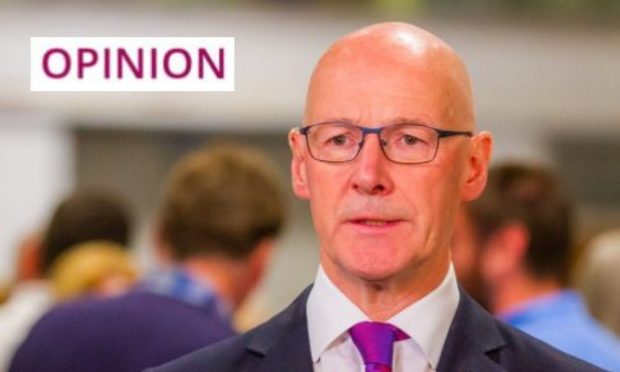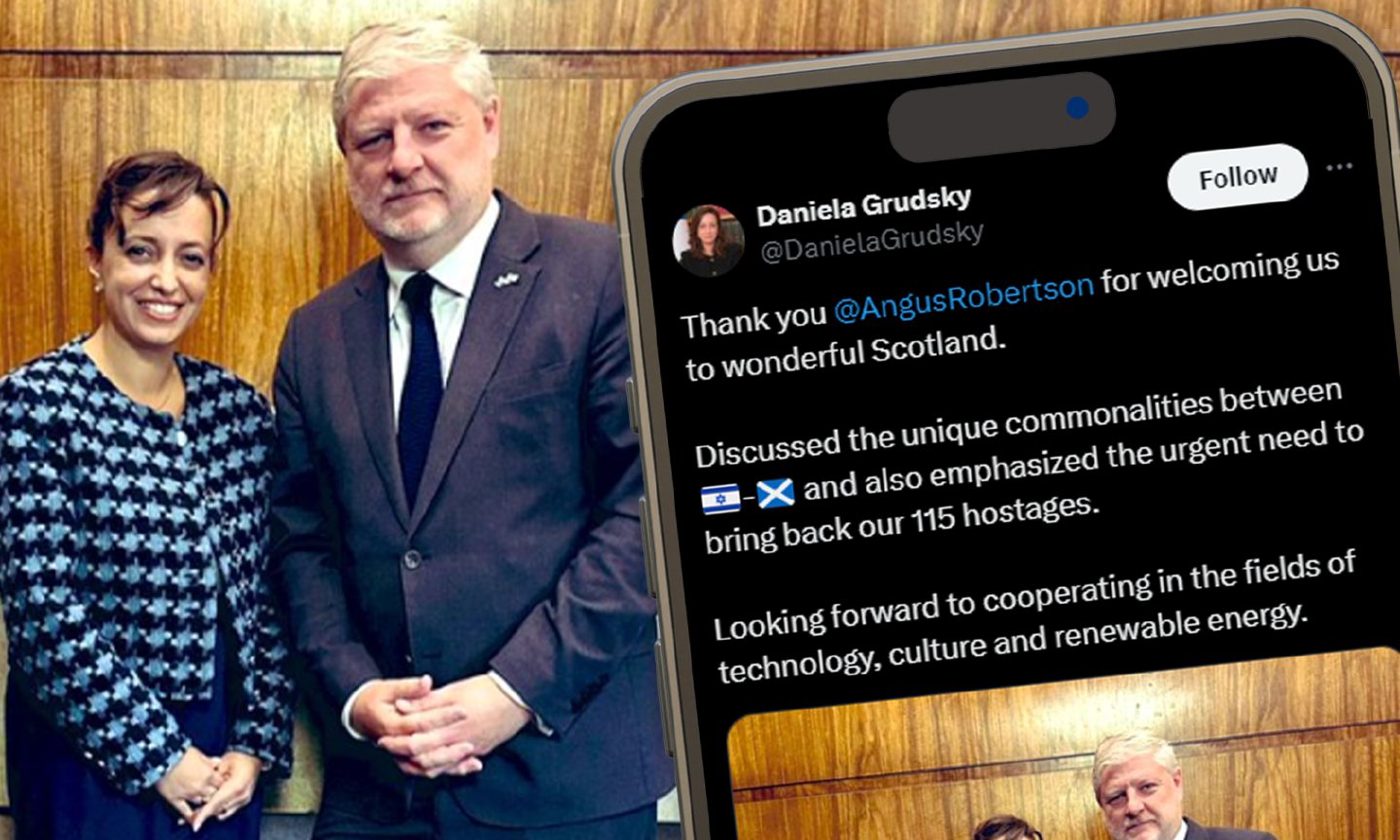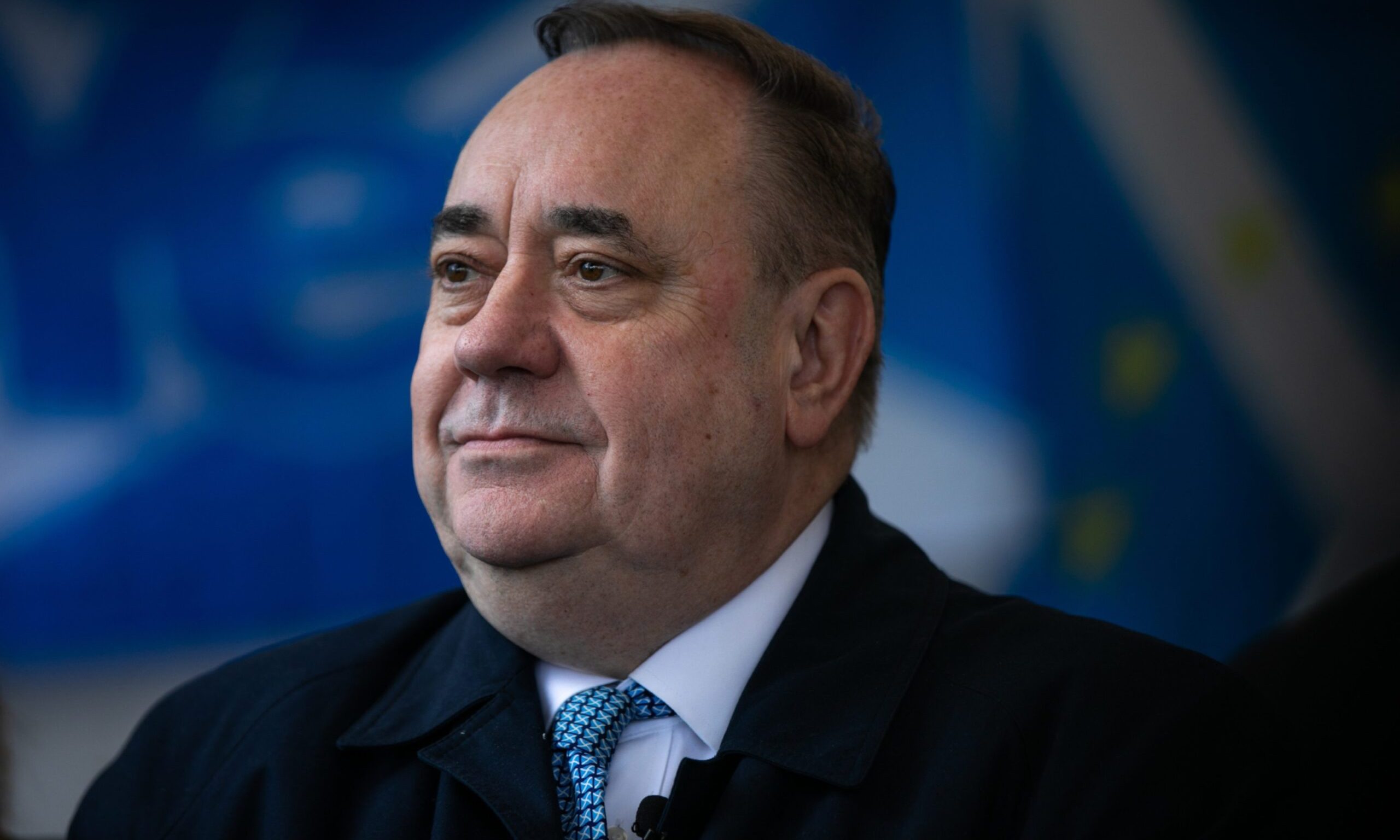In her long career as a diplomat representing the State of Israel, Daniela Grudsky surely never anticipated that her most controversial act would be a meeting with the external affairs minister of a sub-state legislature.
And yet the furore that has followed her exchange with Angus Robertson has been nothing short of extraordinary and, indeed, without precedent.
Former First Minister Humza Yousaf said the meeting had caused “anger and upset” within the SNP, while former SNP MP Amy Callaghan said many nationalists were feeling “let down” by Robertson.
The crisis became so severe that the current SNP leader, John Swinney, was forced to hold an emergency meeting with nationalist membership groups to head-off a wider rebellion.
The outcome of this internal SNP wrangling is a significant change in Scottish Government policy.
‘Deeply concerning’
Swinney’s devolved administration has now been forced into the drastic step of effectively cutting diplomatic ties with the State of Israel – the impact of which is only marginally diminished by the fact such ties never really officially existed in the first place.
Whatever your views on the current situation in the Gaza Strip, or the Israel-Palestine conflict more broadly, this response by the SNP government should be deeply concerning.
It reveals that the SNP administration’s policy is now being governed to by an extremist minority of nationalist members.
Swinney himself had to flee an event at the Edinburgh International Book Festival this week after he was repeatedly heckled by a pro-Palestinian demonstrator, while it has also been confirmed that the SNP has lost 10,000 members over the last year – around 30 a day.
In such circumstances, it is perhaps little surprise that Swinney is desperate to keep those that remain on board.
But it cannot be right that party management takes priority over the international relations of the country.
Certainly, this abrupt U-turn will do nothing to enhance Scotland’s status abroad.
Foreign governments positively engaging with the Scottish Government one day will rightly wonder how they will be viewed the next.
Trade, investment and cultural ties – the very things Robertson and Grudsky were discussing – may well suffer as a result.
At the very least, the debacle is a poor advert for a party and government that aspires to strut across the world stage as an independent nation with a distinct foreign policy.
‘Gross hypocrisy’
More concerningly still, this fiasco exposes a gross hypocrisy at the heart of the SNP and reveals a deeply troubling attitude among nationalists to Israel itself.
There was little outrage from SNP politicians and members when, for instance, Yousaf met with Recep Tayyip Erdogan, despite the Turkish president’s implications in crimes against the Kurdish minority in Turkey and elsewhere.
On the contrary, Yousaf went on to invite Erdogan to visit Scotland, while the former first minister’s wife, Nadia El-Nakla, was welcomed by Erdogan’s wife during a visit to Istanbul.
But accommodating human rights abusers with little outcry from the SNP membership is, sadly, a relatively common occurrence.
Former First Minister Alex Salmond described the Nato mission to stop Serbian ethnic cleansing in Kosovo as “an unpardonable folly”, before going on to serve as a mouthpiece for Vladimir Putin on Russia Today.
Meanwhile, the Scottish Government continues to regularly engage with the People’s Republic of China, a state accused of committing a genocide against the Uyghur minority.
Swinney himself recently met with the Chinese Ambassador to the UK at Bute House with the aim of “continuing collaboration” between the two countries.
That meeting was strongly criticised by Simon Cheng, a former employee of Scottish Development International, who was detained and tortured by the Chinese regime.
He accused Swinney of “appeasing” the dictatorship and “reinforcing the propaganda of Chinese state media”.
‘Extremist fringe’
Given this troubling history, it is legitimate to ask why Scottish Government policy is so inconsistent, and why Israel is apparently beyond the pale.
As Colin Cowan – whose brother Bernard was murdered by Hamas on October 7 – has said, this is a “blatant double standard” by the SNP administration that leaves it, at the very least, open to the accusation of antisemitism.
None of this is to diminish the humanitarian situation in the Gaza Strip or to make a wider judgement on the future of the Israel-Palestine question.
Right-thinking people will be appalled and horrified by the violence inflicted by both sides, and will support a peaceful, two-state solution.
But those reasoned voices are unfortunately no longer the voices the SNP government is listening to.
The SNP has allowed Scotland’s international position to be dictated by an extremist fringe within its own party for domestic political reasons, leaving our national government looking weak, inconsistent and hypocritical.
And that really is an unpardonable folly.













Conversation